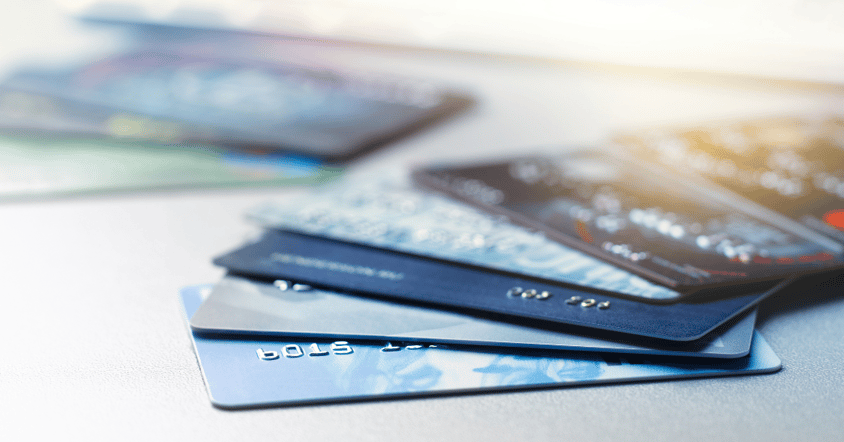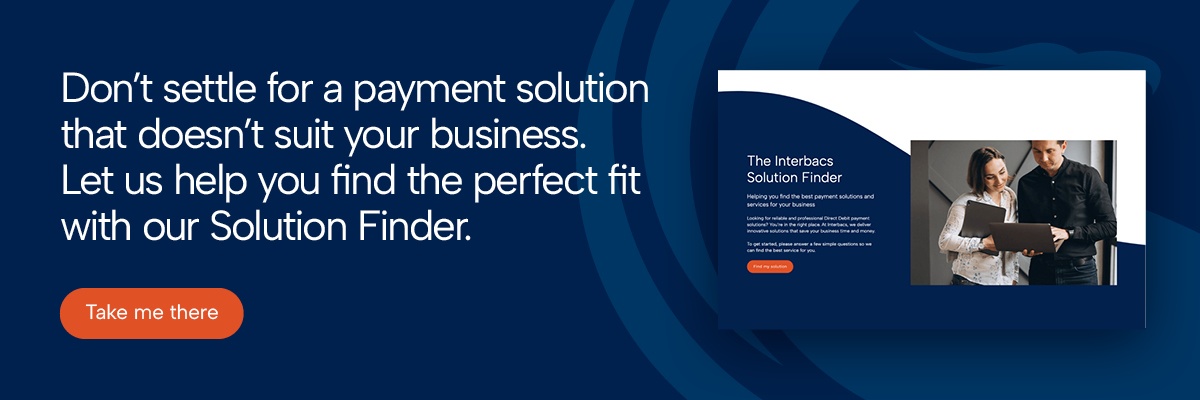Long established as a clear and efficient payment system for businesses, Direct Debits are also...

Enhancing Direct Debit Security with Payment Solutions
Direct Debit payments have become an increasingly popular way for businesses to collect payments from their customers — 4.6 billion Direct Debit payments were made in the UK in 2021.
This popularity is courtesy of several benefits, such as automated payment processes, time savings, reduced administrative costs, greater cash flow and added customer convenience.
However, collecting Direct Debit payments can come with risks that must be managed effectively. Here, we'll discuss these risks and the direct debit security measures you can implement to mitigate them.
Risk #1: Unauthorised transactions
A significant risk associated with Direct Debit payments is unauthorised transactions. If a customer's account is compromised and fraudulent transactions are made, your business could be held responsible for any resulting losses.
You can maintain direct debit security by implementing robust authentication procedures to process only authorised transactions.
You can do this by requesting that customers provide additional identification information — such as passwords or PINs — or requiring two-factor authentication for certain transactions.
Risk #2: Payment disputes
Another risk with Direct Debit is payment disputes. If a Direct Debit payment error is made, the payer is entitled to a full and immediate refund from the bank or building society of the amount paid.
Customers may dispute payments they believe to be unauthorised or incorrect, resulting in chargebacks and potential financial losses for the company.
To reduce the chance of this occurring, your business should ensure your payment processes are transparent and payment terms are clearly communicated to customers.
Risk #3: Cybersecurity threats
Direct Debit payments can be vulnerable to cybersecurity threats if not protected sufficiently. Threats can compromise customer data, result in fraudulent transactions and ultimately damage your business' reputation.
Your business should implement robust cybersecurity measures to protect against outside threats. These measures can include antivirus software, firewalls and encryption.
Your company should also educate its employees and customers about cybersecurity best practices, such as avoiding suspicious links and using strong passwords.
What measures can you take to mitigate risk?
Although Direct Debit is a vastly secure way to collect payments, there are still measures your company can take to ensure maximum payment security for your customers.
Secure payment gateways
Your business should use a secure payment gateway to process Direct Debit payments. A payment gateway is an intermediary between your company website, the customer and the bank.
It's a seamless process and your customer doesn't interact with the gateway directly. It ensures all payment details are passed securely through the relevant financial channels, encrypting sensitive data.
Here's a simplified breakdown of how it works:
- Your customer pays via phone or website.
- Their payment details are sent via a secure payment gateway.
- Your merchant account processes the payment.
- Your customer is notified that their payment has been successful (or declined).
- The funds are settled to your business (if payment is successful).
Your payment gateway must protect transmitted data by complying with industry security standards, such as PCI DSS.
Fraud detection tools
Your company should utilise fraud detection tools to identify and prevent fraudulent transactions. These tools detect any suspicious activity and notify your business in real-time, allowing you to take responsive action to limit financial and reputational damage.
Fraud detection software combines Know Your Customer (KYC), anti-money laundering (AML) and authentication tools to protect companies suffering from fraudulent activity.
Features of fraud detection software can include digital footprint analysis, real-time monitoring and alerts, KYC checks and machine learning suggestions.
Customer verification
You should implement customer verification procedures to ensure that only authorised customers are making payments to your business.
These checks can include requesting additional identification information or requiring two-factor authentication for larger transactions.
Verification can come in many forms, such as email or SMS, and it's imperative to prevent fraud.
Data protection
Data protection measures protect your customers' data from external cybersecurity threats.
These measures can include encryption to protect sensitive data, regular data back-ups for accidental data loss and ensuring your software and systems are secure and up-to-date.
Employee training
Your business should educate your employees on the risks associated with collecting payments and provide them with cybersecurity training on direct debit security.
This training can include how to identify fraud risks and prevent fraudulent activity, how to use secure passwords, how to handle and store customer data safely, and how to detect and respond to suspicious activity.
Looking to start accepting Direct Debit payments?
Collecting Direct Debit payments can offer businesses several benefits, including reduced administrative costs and greater cash flow.
If your business is currently spending lots of time chasing payments, looking into the range of payment collection options available might be worthwhile.
Knowing the right option for your company can be difficult, so we've put together our Solution Finder. All you need is to answer a few questions about your business and we'll recommend the best solution to suit your needs. Get started below.




